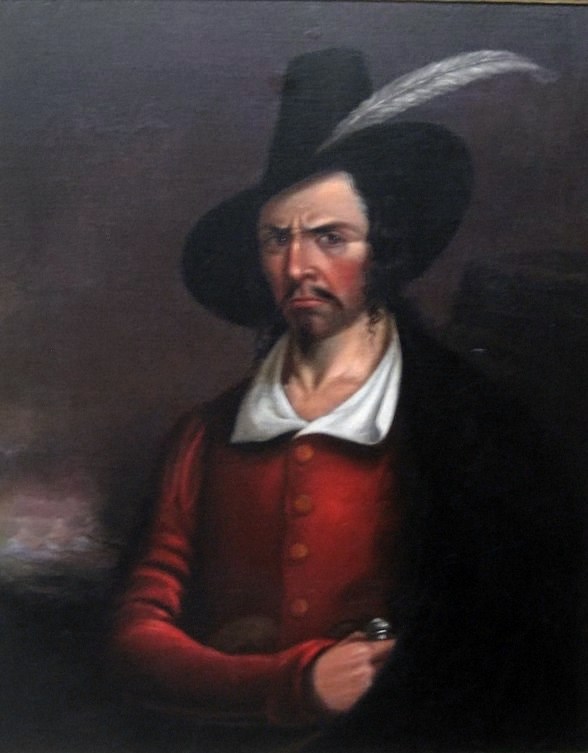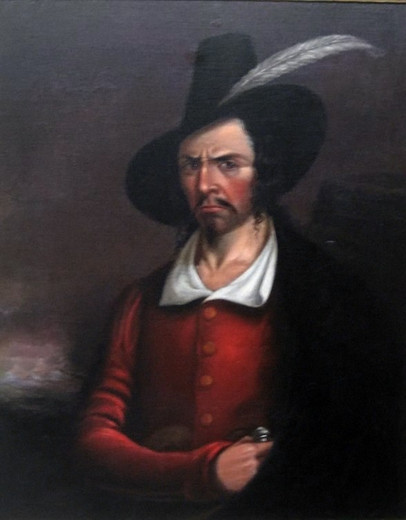The Patriot Pirate
Posted by Dave Cottrell on Mar 1st 2018

The patriot pirate, two words that seem to be in conflict with each other, was a real American hero. Jean Lafitte, an American of French descent, very likely changed the course of the Battle of NewOrleans. Major General Andrew Jackson's victory, as he fought to protect the new American territories acquired from the French in the Louisiana Purchase from British invaders, was made possible by thesupplies of men and munitions delivered by Lafitte.
Called by some the "Gentleman pirate of New Orleans," Lafitte did not begin his career as an American hero. In fact, like many other pirates of his day, he was wanted, not only by the foreign governments whom he attacked, pillaged and profited from, but also by the American government, who saw him as very bad press for the American colonies as they tried to develop trading relationships with wealthy countries in Europe.
Of course, Jean Lafitte did not see himself as a pirate. Instead, he was in his mind a "privateer." The problem with his definition of himself is that a privateer is a privately owned and officered armed ship with a government commission.
The commission, known as a letter or marque, empowers the privateer to carry out all forms of permissible wartime hostilities at sea, including attacking foreign ships and seizing them as prizes. The only problem with Lafitte's claim is that he had no such authorization.
In fact, Lafitte's escapades likely created a real problem for lawmakers of the young country, as he continuously preyed on foreign ships plying the waters off the US coast, including those from countries trading with them.
Lafitte ran a very successful smuggling operation at the mouth of the Mississippi River from a community he controlled. This settlement was called Barataria Bay. Interestingly, "barataria" means "cheerleader" in Basque, Catalan, Galician and Corsican. All of these areas, but most notably Corsica, a French island in the Mediterranean, and the Basque Peninsula, were linked to pirates in the 18th and early 19th centuries. Perhaps the people of the small village on the Mississippi (which still exists, today), were naturally cheerleaders for the smugglers who helped to feed and protect them, such as Jean Lafitte. As the commerce of Lafitte ran contrary to the commerce of the United States, he continued to be a wanted man, though the love of the people his activities supported made it very nearly impossible to capture him.
When the British decided to launch an attack against the American territories acquired from the French in the Louisiana Purchase, the US government turned to Jean Lafitte in recognition of his military skills. The offered him a full pardon in return for fighting on behalf of the United States during what would be called the War of 1812. Interestingly enough, the British also courted Lafitte, who, informally feigning acceptance of their advances, pretended to negotiate with them while surreptitiously passing information gleaned to the United States. This information proved to be quite useful in preparing the US for the coming invasion.
During the Battle of New Orleans on January 8, 1814, Lafitte and his men provided crucial support for the US forces led by Major General Andrew Jackson (aka - Old Hickory). Not only did Lafitte supply enormous amounts of gun powder and other munitions, his men were already skilled in the art of naval war, and, according to history, apparently fearless.
On a lighter note, when Jackson asked about the pleasant aroma of the coffee Lafitte's men calmly brewed up just prior to an attack that Jackson's men were in terrible fear of, one of the pirates jokingly told him, "It's hickory flavored." Compared to Jackson's army, Lafitte's men did seem fearless. To the farmers, laborers and slaves who stood with Jackson against the British attack, Lafitte's battalion of battle-hardened pirates and adventurers must have seemed somewhat like supermen.
Together, Jackson and Lafitte's men fought with great valor and determination, eventually bringing about the historic British retreat. As the smoke of that great battle finally settled, the British losses numbered above two thousand, while the American losses amounted to just one hundred and one. Today, while Jean Lafitte is remembered in history as a pirate, his contribution to the victory of his adopted United States has earned him a place in those same history books as a true American patriot.


